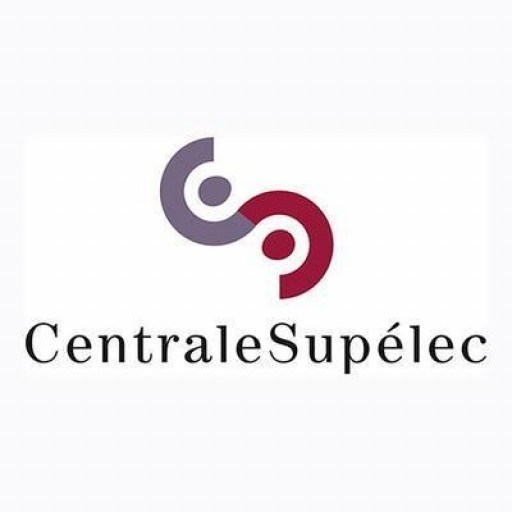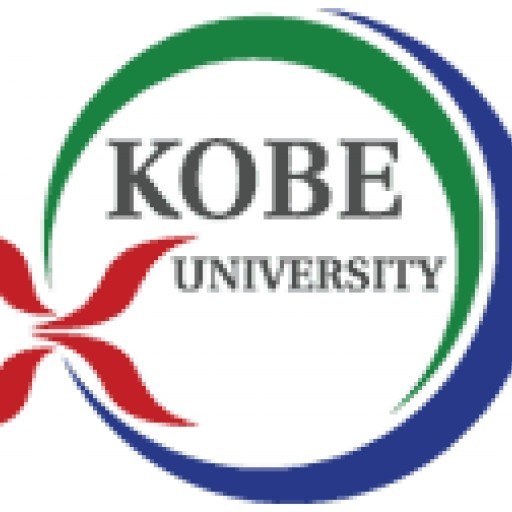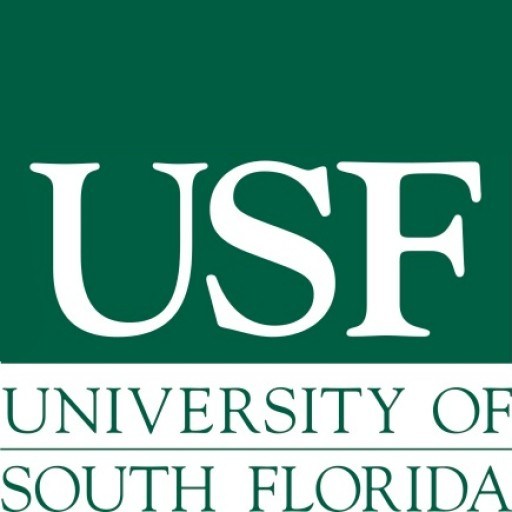Photos of university / #dtudk
The Civil Engineering program at the Technical University of Denmark is a comprehensive and rigorous course designed to prepare students for a successful career in the broad field of civil engineering. This program combines theoretical knowledge with practical skills, emphasizing innovation, sustainability, and technological development to address modern infrastructure challenges. Students will explore fundamental topics such as structural analysis and design, geotechnics, transportation engineering, water resources management, and environmental engineering. The curriculum is structured to foster critical thinking and problem-solving abilities, enabling graduates to develop innovative solutions for infrastructure projects that are safe, efficient, and environmentally sustainable.
The program offers a strong emphasis on research and hands-on experience, including laboratory work, project-based learning, and internships with leading industry partners. Students will have access to state-of-the-art facilities, workshops, and laboratories that simulate real-world engineering environments. In addition, the program promotes interdisciplinary collaboration, encouraging students to work across different engineering domains to solve complex construction and infrastructure problems.
Throughout their studies, students will develop core competencies in project management, digital modeling (such as Building Information Modeling - BIM), and sustainable development practices, equipping them with the skills necessary for leadership roles in the construction industry. The civil engineering program also emphasizes the importance of understanding societal needs, environmental considerations, and ethical responsibilities, ensuring graduates are prepared to contribute positively to society.
International mobility and exchange opportunities are an integral part of the program, enabling students to gain global perspectives and experience diverse working environments. Upon completion of the program, graduates receive a recognized engineering degree that qualifies them for a variety of roles in consulting firms, construction companies, public authorities, and research institutions. They are well-prepared to pursue further specialization, such as a master's degree or PhD, or to enter the workforce directly, contributing to the development of sustainable and resilient infrastructure systems worldwide.
About programme
Mandatory courses:
| 11376 | Probabilistic Modeling in Civil Engineering | 5 | point | F2B (Thurs 8-12) |
For students that do not follow a study line, the following two courses are strongly recommended:
| 11465 | Advanced Geotechnical Engineering | 5 | point | F4A (Tues 13-17) |
| 11563 | Concrete Technology | 5 | point | E5A (Wed 8-12) |
Choose the remaining points (for a total of at least 30 ECTS points) among the following courses:
| 11020 | Building Fire Safety | 5 | point | E4A (Tues 13-17) |
| 11080 | Advanced Building Design | 10 | point | E3A (Tues 8-12) and January |
| 11122 | Heat and mass transfer in buildings | 5 | point | E1B (Thurs 13-17) |
| 11222 | Indoor Climate | 10 | point | F5 (Wed 8-17) |
| 11345 | Computational structural modelling: plates and shells | 5 | point | E5B (Wed 13-17) |
| 11465 | Advanced Geotechnical Engineering | 5 | point | F4A (Tues 13-17) |
| 11563 | Concrete Technology | 5 | point | E5A (Wed 8-12) |
| 11857 | Extreme Climate and Physical Nature | 5 | point | Spring |
| 11858 | The Arctic Infrastructure and Society | 5 | point | Outside schedule structure |
| 11859 | Environmental Engineering in the Arctic | 5 | point | Outside schedule structure |
| 31241 | Building acoustics | 5 | point | E2A (Mon 13-17) |
| 41106 | Marine Structures 1 | 5 | point | F5A (Wed 8-12) |
| 41111 | Hydrodynamics 2 | 5 | point | E3A (Tues 8-12) |
| 41214 | Dynamics of Structures: Theory and Analysis | 7.5 | point | F3A (Tues 8-12) |
| 42280 | Smart, Connected, and Livable Cities | 5 | point | E4A (Tues 13-17) |
| 42286 | Planning and management in construction | 5 | point | January, June |
Technological Specialization Courses
| 11023 | Structural Fire Safety Design | 5 | point | E4B (Fri 8-12) |
| 11034 | Advanced Building Information Modeling (BIM) | 5 | point | E2A (Mon 13-17) |
| 11115 | Building energy and technical services - Integrated design | 5 | point | E5A (Wed 8-12) |
| 11116 | Sustainable Buildings | 10 | point | E2 (Mon 13-17, Thurs 8-12) |
| 11117 | Solar Heating Systems | 10 | point | F3 (Tues 8-12, Fri 13-17) |
| 11124 | Computational Fluid Dynamics for Buildings | 5 | point | E5B (Wed 13-17) |
| 11127 | Sustainable heating and cooling of buildings | 5 | point | F4A (Tues 13-17) |
| 11129 | Sustainable District Heating | 5 | point | F1A (Mon 8-12) |
| 11221 | Ventilation and Climatic Systems | 10 | point | E1 (Mon 8-12, Thurs 13-17) |
| 11320 | Structural Analysis of buildings | 5 | point | E1B (Thurs 13-17) |
| 11331 | Experimental Structural Mechanics | 5 | point | January |
| 11347 | Computational structural modelling: Plasticity | 5 | point | E2B (Thurs 8-12) |
| 11351 | Advanced Concrete Structures | 5 | point | E4B (Fri 8-12) |
| 11352 | Advanced Steel Structures | 5 | point | F2A (Mon 13-17) |
| 11353 | Advanced Wood Structures | 5 | point | F5B (wed 13-17) |
| 11374 | Seismic and Wind Engineering | 10 | point | E3 (Tues 8-12, Fri 13-17) |
| 11375 | Bridge Structures | 5 | point | E1A (Mon 8-12) |
| 11418 | Rock Physics and Rock Mechanics | 5 | point | E5A (Wed 8-12) |
| 11420 | Mineral resources | 5 | point | E4B (Fri 8-12) |
| 11430 | Advanced engineering geology: soil and porous rocks | 5 | point | E3B (Fri 13-17) |
| 11451 | Highway pavements | 5 | point | E1B (Thurs 13-17) |
| 11464 | Advanced Soil Mechanics | 5 | point | The course is expected to be offered again in the Fall of 2015 |
| 11569 | Durability and repair of concrete structures | 5 | point | F1A (Mon 8-12) |
| 11853 | Sustainable building in extreme environments | 15 | point | Outside schedule structure |
| 11854 | Infrastructure Constructions in the Arctic | 15 | point | Spring |
| 31240 | Architectural Acoustics | 10 | point | F4 (Tues 13-17, Fri 8-12) |
| 41113 | Numerical fluid mechanics for typical marine and coastal applications | 5 | point | January |
| 41117 | Marine Structures 2 | 5 | point | E1A (Mon 8-12) |
| 41126 | Fluvial and Marine Sediment Transport | 5 | point | F4B (Fri 8-12) |
| 41224 | Linear Wave Dynamics | 5 | point | E2A (Mon 13-17) |
| 41225 | Nonlinear Wave Dynamics | 5 | point | F2A (Mon 13-17) |
| 41653 | Corrosion (theory and engineering) | 10 | point | E5 (Wed 8-17) |
| 42259 | Facilities Management | 5 | point | E2B (Thurs 8-12) |
| 42273 | Urban Planning and Sustainable Urban Development | 10 | point | F2 (Mon 13-17, Thurs 8-12) |
| 42279 | Interdisciplinary Urban Planning Course of Danish Universities | 15 | point | F4A (Tues 13-17) and F4B (Fri 8-12) |
| 42433 | Advanced Engineering Project, Program and Portfolio Management | 10 | point | E4 (Tues 13-17, Fri 8-12) |
Requirements
- Passport or national ID card
- Supporting documents uploaded as one document
- copy of passport or national ID card
- statement of purpose (A 400 - 600 Word statement of goals, research interests and experiences, including the subject of your bachelor thesis)
- CV
- two recommendation letters (should be on the university or company letterhead and signed by the concerned)
- diploma supplement (optional) (can be submitted later - please refer to the deadlines)
- Description of the grade scale used at your home university (optional). In many cases this is stated on your academic transcript, or on the university website.
- Description of how the grade scale is applied at your university (optional). It can e.g. be what percentage of students who get the top marks per year, or information similar to this.
- Documentation of completed academic degrees or in-progress academic degrees: (All academic documents should be certified)
- Transcript of records (in original language and translated into English)
- Diploma (in original language and translated into English) - (can be submitted later - please refer to the deadlines)
When applying for admission, you must provide evidence of your academic attainments and proficiency in English. Certificates and academic transcripts in languages other than Danish, English, Norwegian or Swedish must be accompanied by a certified translation into one of those four languages. DTU will only accept IELTS, TOEFL and Pearson certificates that we can verify online.
Applicants from other universities are qualified if they have completed a similar BSc in Civil Engineering with basics of:
-
Physics and mathematics incl. differential equations
-
CAD, programming (Matlab) and the Finite Element Method
-
Building materials, properties, and micro structures
-
Building technology
-
Structural design in steel, concrete, and wood
-
Building physics including heat and moisture transport
-
Planning and production of building projects
-
Students with a Bachelor of Science degree (or equivalent), in natural science or technology, obtained at an internationally recognized university, are eligible for enrolment
-
English B-level:
IELTS 6.5 TOEFL internet-based 88 TOEFL paper-based 573 TOEFL computer-based 230 Pearson 59
Financial support and scholarships
DTU has a very limited number of tuition fee waivers to award foreign, new non-EU/EEA MSc students at DTU. The tuition fee waivers are allocated to a few students with excellent academic performance. The tuition fee waiver is usually granted to cover part of the tuition fee, or in exceptional cases, the total tuition fee. The tuition fee waivers will be awarded in March/April.
All non-EU/EEA students who apply before the 15 January deadline and who wish to apply for a tuition fee waiver must submit a separate personal statement with the application, clearly specifying that you are applying for the tuition fee waiver. The personal statement must include graduate goals, research interests, and experiences. Please target your personal statement to the admission requirements and curriculum for the MSc program in question. If you do not include a separate statement for the waiver, your application will not be considered for the same.
Global Study Awards:
Study Portals are offering the Global Study Awards to 9 students, starting their studies in 2016.
To be eligible for The Global Study Awards applicants must:
- Be 18 years or over on the study programme start date
- Have taken an IELTS test at a British Council centre, and receive an official Test Report Form (TRF) issued by the British Council in the last 2 years and before the application deadline
- Have a valid International Student Identity Card (ISIC) and/or International Youth Travel Card (IYTC) at the time of application: if there’s no local issuing office for the ISIC identity card in your country, contact competitions@isic.org
- Plan to enrol on a full-time undergraduate or postgraduate programme abroad between 1 August 2016 and 31 October 2016
- Provide an acceptance letter from the relevant institution by the relevant cut-off date
- Write a short review of your study experience at STeXX.com: the review for STeXX.com should be about your past experience as a student in your country of origin. It is not about your study abroad experience.
You can choose any university, as long as it is abroad from your country of origin.
The Civil Engineering program at the Technical University of Denmark (DTU) is a comprehensive and rigorous degree designed to prepare students for a wide range of challenging careers in civil engineering and related fields. The program is structured to provide students with a solid foundation in fundamental engineering principles, combined with specialized knowledge in areas such as structural engineering, transportation, environmental engineering, geotechnics, and construction management.
Students enrolled in this program will engage in a multidisciplinary curriculum that covers mathematics, physics, materials science, and engineering design, ensuring they develop analytical skills and technical expertise. The program emphasizes hands-on learning through laboratory work, project assignments, and practical training, fostering innovative problem-solving abilities in complex engineering scenarios. Throughout their studies, students will have opportunities to participate in internships, industry collaborations, and research projects, which enhance their understanding of real-world challenges and solutions.
The program also focuses on sustainable development, emphasizing environmentally responsible engineering practices, resource efficiency, and the integration of renewable energy systems. Graduates are equipped to design, analyze, and implement infrastructure projects that are safe, sustainable, and cost-effective. The curriculum is regularly updated in collaboration with industry stakeholders to ensure relevance and to meet emerging technological trends and societal needs.
Furthermore, the program encourages internationalization, with opportunities for semester exchanges, joint degrees, and participation in international research initiatives. This prepares graduates to work effectively in global contexts, communicate across cultures, and adapt to diverse engineering environments.
Typically, students will acquire competencies in project management, teamwork, and communication, essential skills for leadership roles within the construction and infrastructure sectors. Upon graduation, students receive a Master of Science degree in Civil Engineering, which qualifies them for careers in consultancy firms, construction companies, government agencies, or for further research and academic pursuits.
Overall, the Civil Engineering program at DTU aims to develop highly skilled engineers who are capable of contributing to society through innovative engineering solutions, sustainable infrastructure development, and continuous professional growth. The program's combination of theoretical knowledge, practical application, and international exposure ensures that graduates are well-prepared to meet current and future engineering challenges worldwide.










